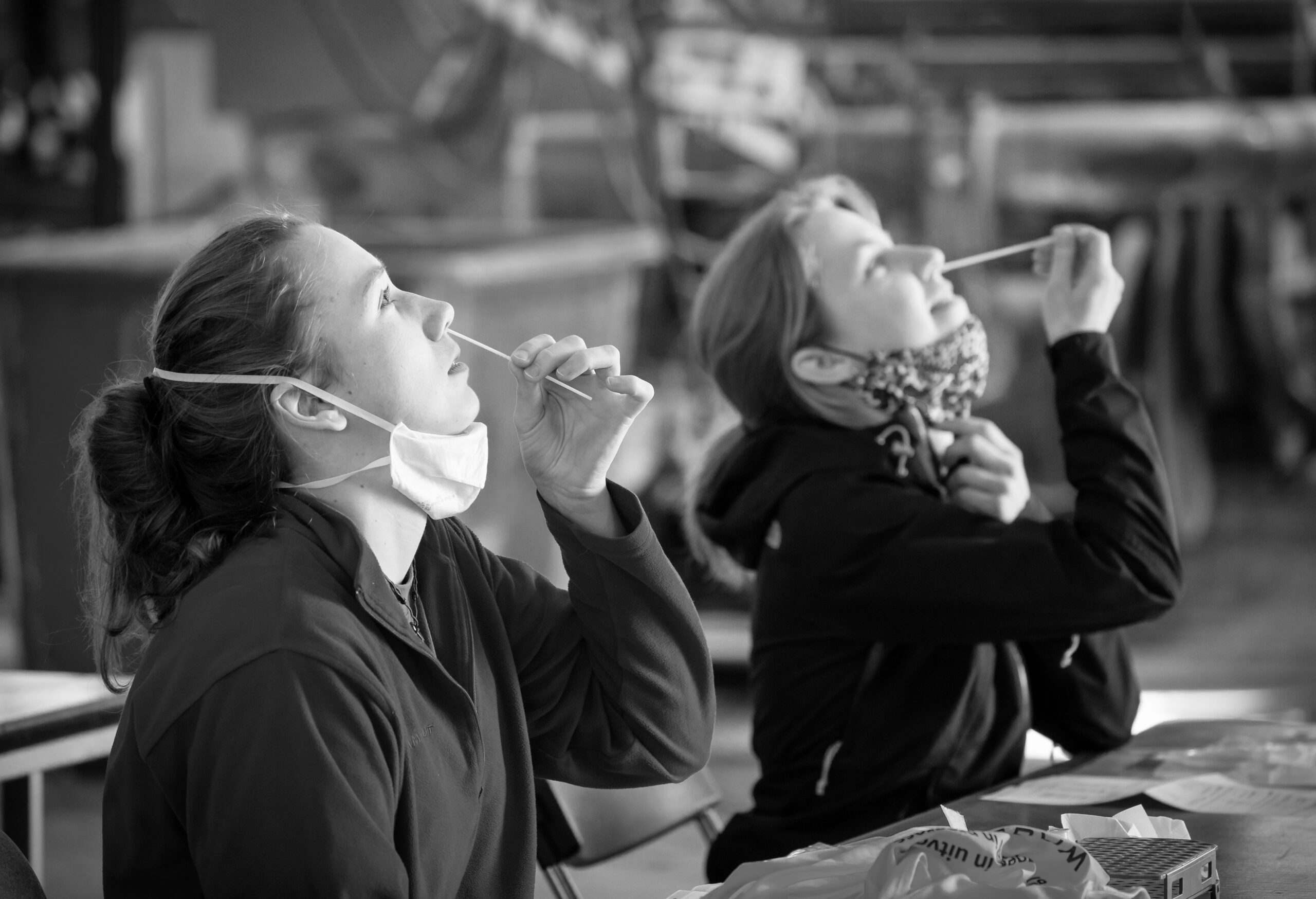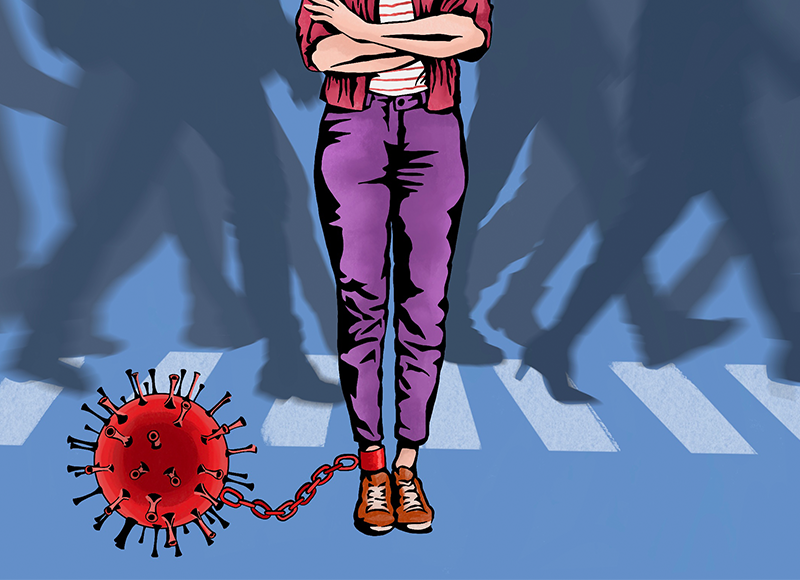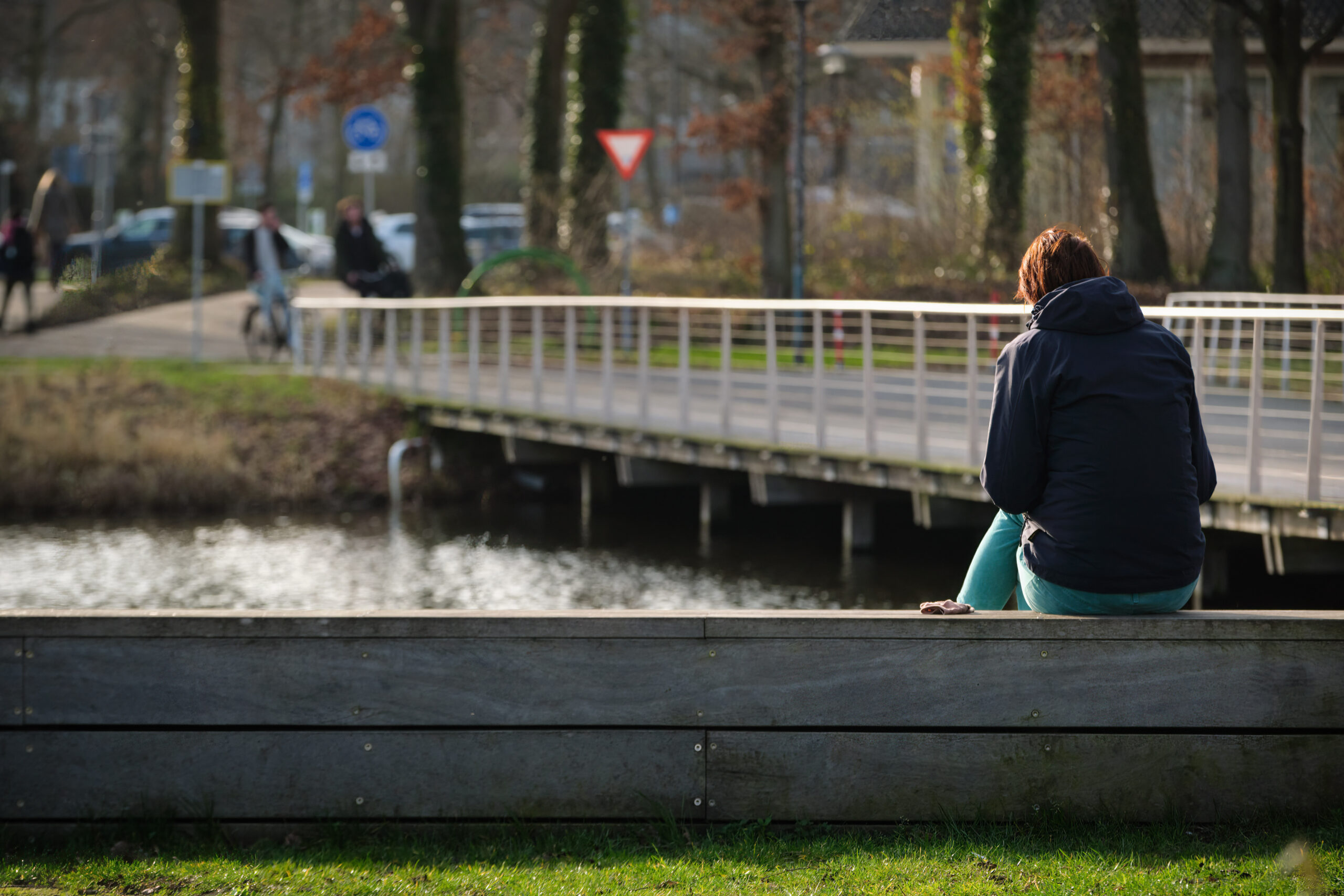As of 26 April, university students will be able to attend classes on campus one day a week. The idea is that free self-tests will make that safer. A good idea or not?
Text Marieke Enter
It is doable but takes some getting used to. That was the opinion of the Human Nutrition students who (voluntarily) tried out the Roche self-test at the start of the month for the Human Infectious Diseases practical. If the Ministry of Education has its way, it will soon be perfectly normal for university students and teachers to take a self-test twice a week at home. At least then you know for certain that you can come to campus for face-to-face education without any worries.
Well, almost for certain, because there will be no checks for the time being to make sure you really did the test, let alone whether the result was negative. Of course, that also applies to your fellow students and teachers. That free-and-easy approach means you are just as much in the dark about their infectiousness as in the pre-test days. You have to trust that their self-testing regimen has not been undermined by a lack of time, principled objections, anti-vaxxer conspiracy theories or other factors of varying degrees of validity.
False security
Perhaps this false sense of security explains why WUR students do not seem enthusiastic about the rapid-testing university. At least, that is what a quick poll among Resource readers shows. Of the 86 people who replied to our Instagram poll, fewer than half said ‘yes’ unreservedly to the idea of self-tests twice a week. And do they trust their fellow students to religiously perform their tests? Hmmm. Perhaps for the first week, but over 70 per cent think that discipline will soon go once the novelty has worn off. And nearly 15 per cent ticked the statement ‘No way are students going to do it!’ That scepticism seems justified. When the Avans and HAS universities of applied sciences and Koning Willem I regional training college tried out self-testing, it turned out only 30 per cent of students actually did the tests.
So should the tests be made mandatory? WUR is not keen on the idea, the Executive Board says via spokesperson Annet Blanken. ‘Of course, we are looking forward eagerly to the moment when we can accommodate all students safely again. But a test is not a campus entry ticket‘. Outgoing minister De Jonge said earlier in an interview that he did not expect to see mandatory tests at universities.
You know what students are like: no way they’ll do it
However, the possibility that you might one day be required to show a negative test result to be allowed into the lecture hall or lab has not been ruled out. On Friday 16 April, the Cabinet sent proposed legislation to Parliament for the introduction of ‘proofs of testing’ as an entry requirement, in principle letting institutions choose whether to use them. But this proposal allows for the possibility of making proofs of testing compulsory in the future in higher education, deemed to be an essential sector. Not immediately maybe, but in extreme circumstances a decree can be issued demanding proof of a negative test for students. But not for teachers, says the Higher Education Press Office. That would be too great an infringement of their rights because refusal could cost them their job.
Double the work
As long as Parliament has not yet had its say on the proposed law on proofs of testing, teaching staff do not know whether they need to allow for stubborn conscientious objectors who refuse to take the tests: the idea is that they will have to develop an alternative to face-to-face education for them if compulsory testing is introduced. A strange idea really, because what teacher is going to prepare equally fantastic face-to-face and online versions of their course? Didn’t we already have a working pressure problem with academics sounding the alarm?
Assistant professor Michiel Köhne, who put the red protest cap on The Sower during the recent day of action: ‘They undoubtedly haven’t made any arrangements for funding that alternative, which means lecturers will have to develop the alternative version of the course in their research hours or free time.’ And keep it simple by just offering online videos of the on-campus teaching? ‘Sometimes you have no choice, but the worrying thing is that video lectures soon become the norm. Whereas academic education – turning young people into scientists – is obviously much more than that.’
Voluntary
Proof of testing as an entry requirement is not part of the plan at the moment but the Executive Board is an advocate of voluntary tests. ‘The government’s self-tests will make it possible to detect a significant number of asymptomatic Covid patients even before they come to campus,’ says Executive Board spokesperson Blanken. ‘We are currently carrying out some small-scale logistical pilots to make sure we are well prepared when self-tests become available in large numbers.’ She also announces that the ‘Before you come to a WUR location’ checklist will soon be updated to incorporate the new situation.
We are currently carrying out some small-scale logistical pilots to make sure we are well prepared when self-tests become available
Annet Blanken, Executive Board spokesperson
While more on-campus teaching will be possible from 26 April, the actual distribution of the self-tests still has to be arranged. Minister of Education Van Engelshoven told Parliament that SURF – the collaborative IT venture for the education sector – will have set up a digital portal by early May that students and staff can use to order free tests for delivery to their home. Universities can still ‘open up’ before that is in place. Then you have to hope your fellow students and staff will use the self-tests properly and that the universities are not erecting a huge testing factory just to give people a false sense of security.

 Students test self-test. Photo Sven Menschel
Students test self-test. Photo Sven Menschel 

